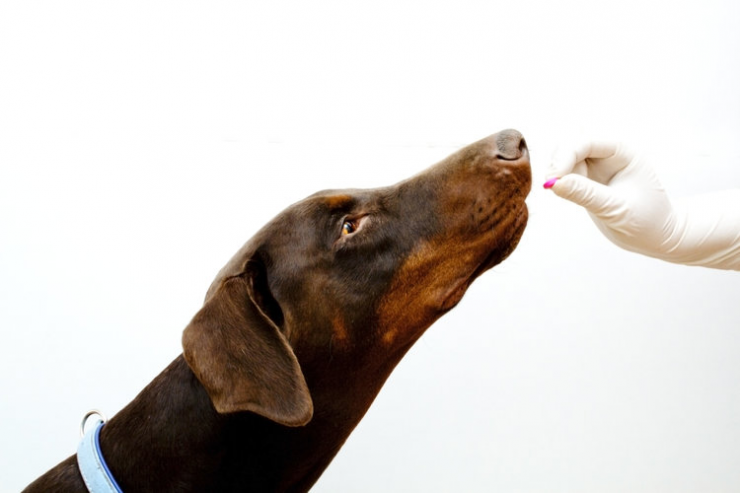Cameron Groome, who moved into the executive suite at Avivagen (TSX-V:VIV) in March, has transformed the focus of the animal wellness company to a business and product development engine and away from an earlier emphasis on R&D.
“When I came on board, I didn’t think the organizational chart lent itself to a business orientation,” he says in an interview with BioTuesdays.com. “I wanted a much more intuitive flow between the elements of the business and we came up with three lean arms: finance and administration, marketing and customer relations, and product development,” he recalls.
“I wanted Avivagen to be a product development engine that could move from concept validation at the lab bench to making a scalable commercial product, along with managing the logistics of moving supplies of active ingredient through final production in a GMP plant,” he adds. “Using this process, we’ll have market-ready products ready to hand over to distribution partners.”
He contends that the process largely has been put into place and that everybody on the team has bought into it. “We’re starting to make a big push for revenue in companion animal and livestock care.”
Avivagen already markets one product, Oximunol, a natural nutritional supplement. The once-daily chewable tablet for dogs is sold by Bayer Animal Health in the United States. “Oximunol supports the overall health of dogs through supporting a healthy immune system, enhancing the healthy condition of skin and coat and promoting healthy joint function to maintain normal daily activities, like walking,” Mr. Groome says.
He explains that the company has taken the science of anti-oxidants a big step forward through the discovery that when carotenoid anti-oxidants are oxidized, they form naturally-occurring bioactive polymers that have immunological effects. This is a novel and unexpected discovery, he adds, noting that the company is preparing a publication for peer review.
“While this discovery has human health implications, we chose a veterinary supplement application as the quickest path to revenue.” Mechanistically, these natural compounds have been shown to improve the immune system’s response to infections and also rein in runaway inflammation, according to Mr. Groome.
Oximunol contains a fully oxidized form of beta-carotene, OxC-Beta, and is specially formulated for companion animals. He points out that OxC-Beta has demonstrated material benefits in canines that owners notice in only a few weeks’ time.
“Since my dog has been on the product, people think I mean months when I tell them she’s 13. Her coat has never been better, and she’s bouncing like a puppy,” he admits. In food animals, OxC-beta has been shown to improve growth and feed conversion efficiency meaningfully at just parts-per-million usage.
Oxidized derivatives of carotenoids occur extensively in the plant world in minute amounts and, as such, are a natural part of the diet. Uses for OxC-Beta and other oxidized carotenoid products are protected by patents in multiple jurisdictions. In addition, the company has filed patent applications directed to products containing OxC-Beta and its use for enhancing and maintaining the wellness of companion animals and livestock and in aquaculture.
“The OxC-Beta platform addresses our three target markets—pet wellness, livestock health and productivity enhancement and, ultimately, human health and wellness,” Mr. Groome contends, adding that the company is now executing a multi-stage program to commercialize the OxC-Beta technology in several companion animal and livestock species.
Last month, Avivagen received a reorder for Oximunol canine from Bayer Animal Health, following a U.S. launch last autumn by Teva Animal Health, which Bayer acquired in January. The reorder was for both product sizes—the tablet containing 20 mg of OxC‐beta for larger dogs and tablets containing 5 mg for smaller dogs.
Mr. Groome says the reorder was important, because it followed a period of due diligence by Bayer of Oximunol canine and OxC-beta. “Now that we’re through their transition, we want to see an increase in the frequency of orders and a steady growth in revenue.”
In addition to Oximunol chewable tablets, Mr. Groome says the company is creating a branded line of “health chews” for dogs and cats that will access the broader direct-to-consumer market this year, by selling primarily via the Internet and, ultimately, specialty pet stores.
“We’ve also done some formulation work on a product for horses, because most owners want their animal to have a healthier coat and more energy,” he says.
For the global livestock market, Avivagen is developing OxC-Beta as a non-antibiotic alternative feed additive for promoting health and productivity. Mr. Groome says there is a growing global awareness and concern about the antibiotic resistance of human pathogens that is believed to result from the widespread use of antibiotics for livestock disease prevention and growth promotion.
Avivagen’s prior research on swine and poultry demonstrated that OxC-Beta can provide significant improvements in growth and feed conversion efficiency, Mr. Groome says. “We are pursuing distribution arrangements in jurisdictions where there is a high motivation to eliminate the use of antibiotics and that have lower regulatory hurdles for natural products, such as Asia,” he adds.
At the VetHealth Global meeting in Prince Edward Island this month, Mr. Groome says that there was strong interest by marketers in obtaining regional rights to OxC-beta for companion animals and for livestock applications. While Avivagen is committed for Oximunol canine in the U.S., it has a free hand for securing partnerships for other products and markets.
“We are working to drive revenue from multiple products and markets,” he says. “Oximunol canine is now being marketed to veterinarians in the United States, but we have more markets and more products coming.”






